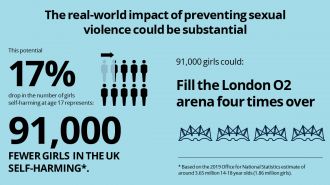
- Our studies
- Our research
- Publications and resources
- Data access and training
- About
- News
- Events
- Get in touch
- Join our mailing list

Welcome to our news and blogs section. Here you’ll find the latest developments and insights from across our longitudinal studies.
Data from the 1970 British Cohort Study (BCS70) Age 51 Sweep are now available to download from the UK Data Service.

Private school pupils in England no longer perform better in GCSE English, Maths and Science than their state school peers from similar backgrounds.
Generation Z children born into the poorest fifth of families in the UK are 12 times more likely to experience a raft of poor health and educational outcomes by the age of 17 compared to more affluent peers, finds a new report led by UCL researchers.

The prevalence of serious mental health problems among 17-year-olds could drop by as much as 16.8% for girls and 8.4% for boys if they were not subjected to sexual violence, such as sexual assault and harassment, according to estimates from UCL researchers.

Inequalities in the early cognitive, social and emotional development of children in the UK, which are so important in shaping later life outcomes, have changed little between those born in the early 2000s and those born in the early 2010s. Researchers from the UCL Centre for Longitudinal Studies (CLS) and the Institute for Fiscal Studies […]

At age 17, 9% of males have carried or used a weapon, with one in four of those involved in this form of serious offending reporting they are gang members, according to UCL researchers.

Our initial findings from the Millennium Cohort Study Age 17 Sweep cover a range of themes, including mental health, obesity, substance use and antisocial behaviours.

Almost a third of 17-year-olds have tried cannabis and one in 10 have tried harder drugs, such as cocaine, ecstasy and ketamine, with similar rates of experimentation regardless of parents’ education level, finds a new study by UCL researchers.

More than one third of UK teenagers are starting adult life with excess weight (either overweight or obese), and rates are even higher among the poorest, finds a new study led by UCL researchers.

16% of teenagers report high levels of psychological distress at age 17, finds a new study led by UCL researchers based on data collected in 2018-19. The findings also show 24% of young people report self-harming and 7% report self-harming with suicidal intent by age 17.
Data from the age 17 Sweep of the Millennium Cohort Study (MCS) are now available to download from the UK Data Service. This introductory webinar looked at what was new in the this survey. Our researchers answered questions from data users.

The data cover a comprehensive range of topics, including education and training, transitions to the job market, mental health and wellbeing, physical development, personality, identity, attitudes and expectations, engagement in risky behaviours, and social media activity.
At this event, organised by CLOSER, we will present results on the measurement properties of mental health measures, before and after harmonising these so that they can be compared across time and study.
Ryan Bradshaw
Senior Communications Officer
Phone: 020 7612 6516
Email: r.bradshaw@ucl.ac.uk